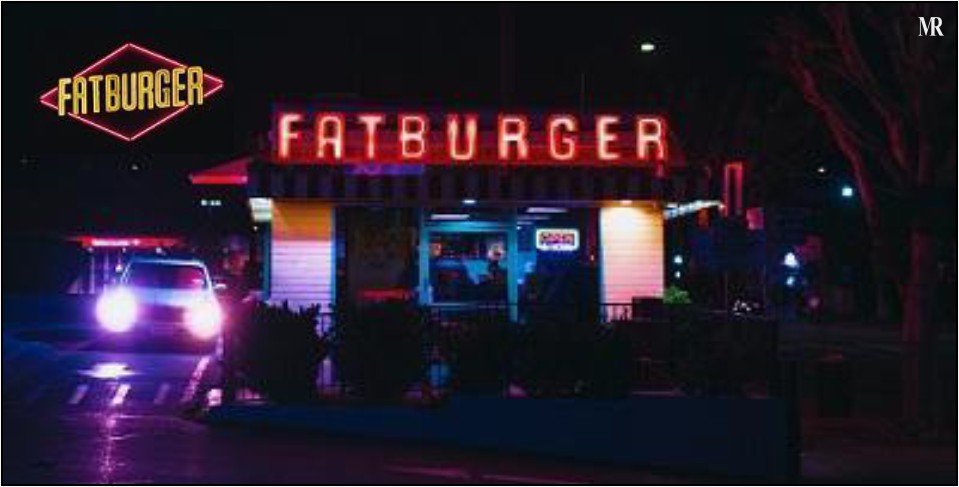Doing a job versus initiating and developing a business has its own advantages and pitfalls. Primarily, this decision is influenced by your life goals, mindset, and passion. Working in Google or starting your own tech company is an example of it.
| Employee | Business Owner |
| Contributes to company owner’s goals. | You are the boss and you would be heading the employee base to achieve your organizational goals and objectives. |
| You would be remunerated with the fixed amount of salary on monthly basis. | The scale of earning opportunities is different and maybe more profitable here dependent on your company operations, business model, and myriad other factors. |
| Work time is fixed and you are bound to perform job duties in that time. | You can alter your working schedules. |
| Risks are low. | Risks are higher comparatively. |
There are various ways of doing business: starting from scratch, franchising, licensing, chains, etc. Franchising is a strategy where the owner (franchisor) grants the right/ permit to market/ sell/ offer his/ her products and services at a particular location. They (franchisee) would be given business model training in return for money (plus royalty payments in some cases). E.g. McDonalds
Chain is a strategy where the parent company owns all the branches – each business branch has the same marketing, trademarks, products, etc. e.g. Walmart
In Licensing, the company owner (licensor) gives license to the individual (licensee) to use products and brand name. E.g. Target Starbucks, Disney’s license to Mcdonalds to utilize Disney trademark characters on their happy meals.

Why do people opt Franchising model?
As said, it depends on personal goals and preferences. Some of the many reasons could be:
Advertising
It is becoming huge in today’s business growth tactics. Google ads, Facebook ads, billboards, etc. are just mushrooming every single day. Franchisees take advantage of the marketing efforts of the franchisors and promote themselves in their own location.
Technology
If the business operates at various locations, business owners find it feasible to invest in business technology – like websites, inventory control, and customer management systems, accounting systems, etc. Some best CRM software in Canada are Infoflow, SugarCRM, SageCRM, etc.
Similar is true for modern payment gateways and digital payment methods like acceptance of debit cards, unsecured, and secured credit cards in Canada. Software solutions become feasible in franchising/ branch models whereas in individual businesses their installation and maintenance get costly.
Customer Experience
Both franchisor and franchisee have a common goal to attract and retain consumers, build loyalty, and grow profits. Because of this joint effort, both contribute to making the customer experience worthy.
Financial Aspect of Owning a Franchise
Let us look into the financial facets of franchising:
| Collective Buying Power | The collective buying power concept is similar to bulk discounts. Franchisors have developed relations with suppliers over time. You as a franchisee may also benefit from it and attain discounted less expensive items from them. |
| Franchise Cost | The customer base, business model, the brand name has their gains but money is associated to get access to these benefits.Franchise agreements have their costs. There may also be an ongoing cost/ fee for support/ training/ marketing which may limit your profit. |
| Royalty Payments | Some franchisors do not ask for royalty payments while others do to use their trademarks and patents. Owners consider it as their remuneration for utilizing their intellectual property.Some examples of royalties are franchise fees and music copyrights |
| Financing Ease | Having enough capital is extremely crucial for the continuity of day-to-day company operations. In comparison to individual startups, lending agencies associate this sense of security with financing to the franchises. |
| Higher Initial Investment | Famous franchises demand high initial investments for benefiting from their brand name, customer trust, and products/ services.Such investment amounts may force you to take a loan which is not only risky but also you would have to be quite careful regarding monthly interests. |
| Sharing of Financial Information | This has its pros and cons. You may get insights into high-performing franchisees and you may improve your operations.Alternatively, you have no privacy regarding financial info as franchisors collect this data routinely for royalty fee and advertising fee calculations. |
| Advertising and Marketing Expenses | Franchisors may ask for these expenses. Pay heed to such costs while/ prior to signing the franchising agreements. |
Pros and Cons of Franchising
There are some risks associated with the franchising model/ strategy in addition to some lucrative benefits. You would need to weigh them to find out if this strategy of doing business aligns with your business goals and objectives!
1. Brand Awareness
Customers want to have the shopping experience worth their time and money. They are comfortable with brands that prefer their satisfaction and have a good reputation.
A fine reputed brand yields the following paybacks:
- Bigger word of mouth marketing
- Amplified customer loyalty
- Increased sales
- Building your brand equity
2. Risk Factor
Instead of starting a business from the bud stage; franchise models, products offered, and operations (if you have researched properly) are tested. Obviously, you would be investing in a franchise that has pre-loved products and is working just fine.

In a personal business startup, risks like whether or not the customer base would be built and would the business be able to afford the daily business operations and expenses exist.
Also, franchises have easier access to financing than personal businesses.
3. Franchisor Support
This could be in various forms:
- Training
- Financial assistance
- Grand opening program guidance
- Location Decisions
- Construction
- Financing
Since the performance of the franchise affects the brand name of the franchisors, they make efforts to guide the franchisee so that they could give the ultimate consumer experience and earn customer satisfaction.
4. Revenue Generation
Franchisees can research and look into ways to improve franchise sales. However, once you have understood the grounds of the business owner’s model, applied it correctly, initiate operations, and consumers start getting in – you enter the circle of generating continued revenues.
5. Easier Franchise Capital Access
Banks and other lending agencies are particularly concerned regarding the creditworthiness and responsibility traits of the loan-taker (potential). They want to forecast whether or not the borrower would be able to repay the amount with interest.
- Can he repay the loan amount?
- Is his business model feasible?
In the case of franchised businesses, lending companies know/ can easily determine the performance/ success rate of offered products and services. They find franchises less risky than individual businesses.
6. Recognized Brand and Customer Base

Some common customer challenges are:
- Response time
- Humble customer representatives
- Failing to meet a commitment
- Wrong/ faulty product
Customers are somehow reluctant to purchase/ test/ try the new brands. They prefer purchasing from known brands. Franchises attract customers and makes it a stress-free for them to try their favorite brands at new locations.
7. Unlimited Choices
You have the right and freedom to choose the industry based on personal preferences/ passion, or high-performing industry.
Once the industry is chosen, you can direct your energies to maintain/ improve franchise operations. In the future, however, you can decide to sell this franchise and initiate a new business in the same or different field.
8. No Experience Requirement
Franchisors guide/ train franchisees regarding operations, models, products, and services. You may ask for further guidance from the franchisors (in some cases). If the industry, thus chosen, is as per your personal preferences – you would not need to try hard to run your franchise.
Although, experience/ training may be required for professional fields like accounting and finance.
9. Business Idea
The brand owner has a tested business idea and model with all its facets researched and implemented in fine ways. The franchisee thus doesn’t need to make his/ her own as is the case of personal startups.
A good business idea has the following advantages:
| Milestones | Business planning includes setting realistic goals and directing your labors to obtain/ achieve them. Companies can have goals of various sorts: New location, increasing customers/ sales, creating a marketing strategy, etc. |
| Business Strategy | It is quite crucial to decide and stick to (you can always try new things which contribute to this strategy/ you may alter the strategy too) your business strategy.It’s very important to find out that whether your company’s operations add to this strategy and company goals. |
| Cash Management | Purchases, sales, inventory, debt, and various other cash flow elements are better managed while planning your overall business idea.This helps in managing cash better and overcoming financial flaws in business. |
| A wider picture | Some of the few business factors are:Product developmentMarketing expensesFixed costsA business model lets you plan and strategize these factors. |
| Tracking of results | Benchmarks aid businesses to compare the real situation with what was expected. If performed better, well and good! On the other hand, if performed below expectation, management can further plan to improve performance. |
10. Collective Buying Power
Suppliers offer discounts on bulk purchases. The brand owners establish relations with the suppliers and franchisees can take advantage of the owner’s relations.
11. You may Shift Responsibilities
At the beginning of franchising, you would have to take responsibility to ensure the business operations are in sync with the business model.
Later, you may hire managers to manage such operations.
12. Independence
The franchise brands are well known and have a customer base. Unlike personal businesses, you don’t have to worry about building brand name and customer loyalty.
This means you are a small business head while being connected to a strong and well-established brand.
Cons of Franchising
1. Success Assurance
There is no 2+2 formula for success. If you follow the business model and manage operations just well – there is a high probability to get a good profit. However, there is no guarantee of success figures.
- Bad location choice
- High competition
- Change in trends
These are some of the many factors which can lead to a bad franchise performance.
2. Corporate Controls
Franchisors confine the operations like promotions, suppliers, marketing, location, products/ services. The franchisees are restricted to abide by these restrictions.
Among many other corporate controls are territory controls. Think of a brand you see on a road with a distance of few miles. This is the result of franchisor’s permit and it may cause market cuts and market saturation.
3. Dependent Business Reputation
As much as you may benefit from the good reputation of the franchise, a counter effect is also possible. A bad incident in any of the other franchises can lead to affecting your monthly franchise profits/ earnings.
4. Franchisees Privacy
There is nothing like privacy regarding franchise information (it does not mean that irrelevant people have access to your financial performance info). Franchisors collect, judge, and advise franchis’s financial performance on regular basis.
5. Startup Investment

Franchise acquirement can be costly (but worth it)!
You may have to take a loan and manage the monthly balance clearing of that loan.
FAQs
1. What is a franchise?
The brand owner legally authorizes the franchisee to utilize the brand name/ trademark, business model, and sell his/ her products/ services.
2. What Is a Franchise Disclosure Document?
Also known as FDD, it’s a legal document with 23 sections. Each section is called an Item. It covers information (startup cost, royalty payments, etc.) about the franchisee, his/ her franchise, and legal compulsions.
3. How long does it take to franchise a business?
It takes around 90-120 days. This time period may be influenced by business industry, business partners, etc.
4. How do franchise owners make money?
FDD gives a rough estimate of revenues. These are franchise profits deducting expenses, startup costs (to the franchisor), royalty payments, annual franchise fees, etc.
5. Can a franchise owner be fired?
Well, yes! Franchisors have a right to renew – or not renew – the contract.
4. What is the failure rate of a franchise?
92% of franchises survive 5 years. This rate is quite high than the survival rate of small independent businesses.
Also Read: The Five Top Franchise Trends to Be Expected In 2021















